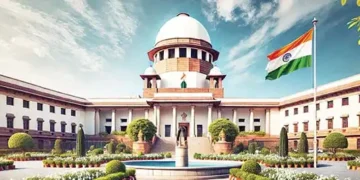Blitz Bureau
NEW DELHI: THE Supreme Court on November 3 expressed grave concern over the growing menace of cybercrimes, which have reportedly led to the extortion of over Rs 3,000 crore from citizens, including vulnerable senior citizens.
The observation was made by a Bench comprising Justices Surya Kant, Ujjwal Bhuyan and Joymalya Bagchi while hearing a suo motu case related to fraud gangs posing as police or judicial officers, showing fake court orders and extorting money from people by threatening to digitally “arrest” them.
During the hearing, the Bench was informed that the scam syndicates were not only operating within India but were also being run from offshore locations.
In sealed cover reports, the Central Bureau of Investigation (CBI) and the Union Ministry of Home Affairs (MHA) submitted that criminal networks linked to digital arrest frauds were often operating from countries such as Myanmar and Thailand.
Emphasising the need to empower investigation agencies through judicial orders, the apex court remarked, “It is shocking that over Rs 3,000 crore have been collected from the victims, including senior citizens. If we do not pass stringent and harsh orders, the problem will magnify. We are determined to deal with these crimes with iron hands.”
Solicitor General Tushar Mehta informed the Bench that the CBI had already begun investigating several cases with technical assistance from the MHA’s Cyber Crime Division. The Supreme Court also appointed an amicus curiae to assist in the matter. In an earlier hearing, the Justice Surya Kant-led Bench had directed all states and Union Territories to file details of First Information Reports (FIRs) relating to these scams.
Observing that “digital arrest” scams appeared to be pan-India, or even cross-border, in nature, the apex court had suggested that the investigation be handed over to the CBI. “There are more than one instance that have taken place in different parts. We are inclined to entrust the matter to the CBI in respect of all the states because this is a kind of crime which may be operating pan-India, or even across the border,” the apex court had said.
































